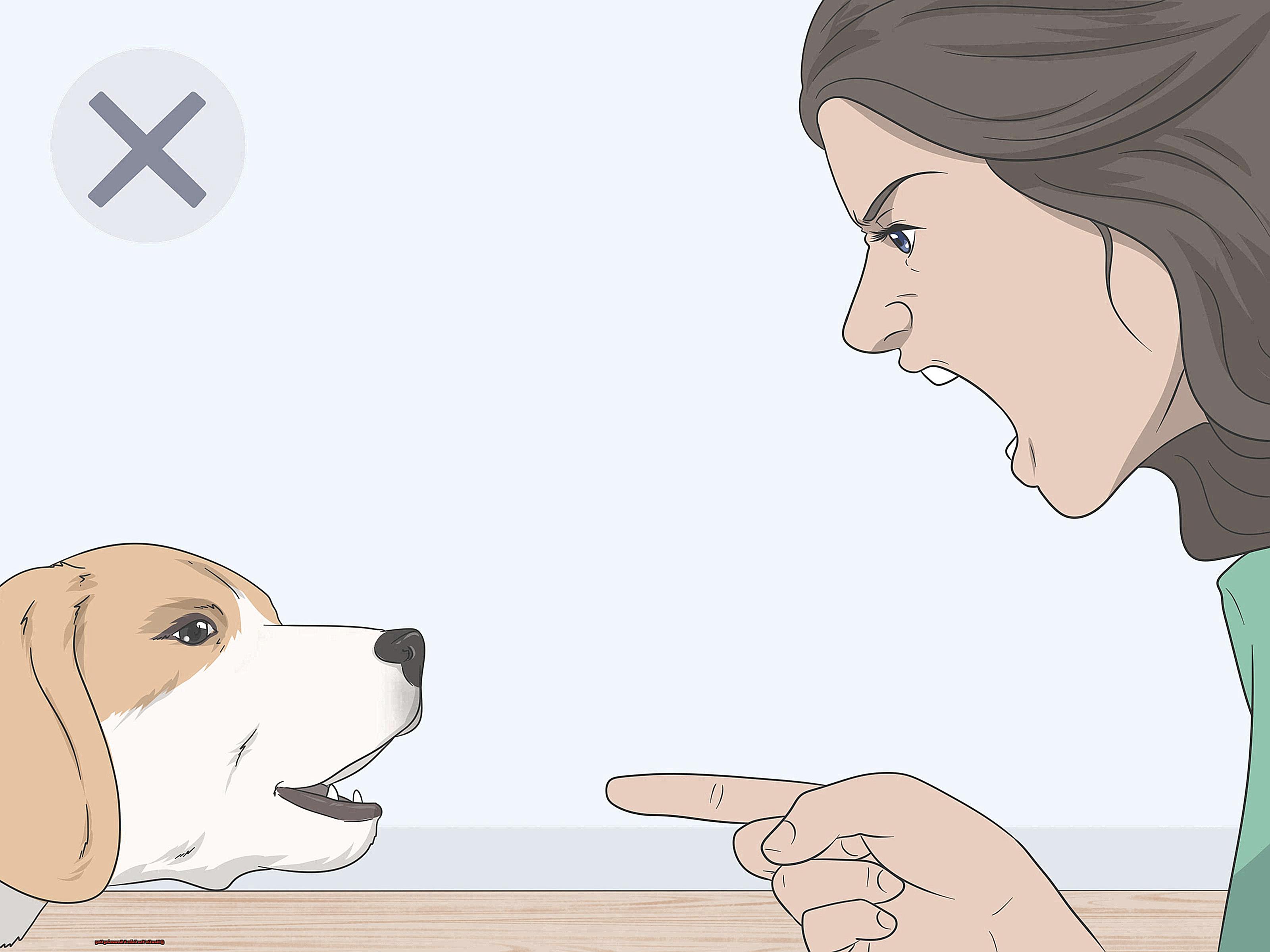How Do You Calm A Screaming Dog?
If you’re a proud dog parent, you’ve probably experienced the sheer panic and chaos that ensues when your beloved pup starts unleashing their inner banshee. It’s not only a headache-inducing sound, but it can also be downright nerve-wracking and overwhelming.
But don’t fret, because we’ve got some expert tips and tricks up our sleeves to help you tackle this common canine conundrum. From understanding the reasons behind their screams to implementing practical techniques for managing their behavior, we’ve got your back.
So take a deep breath, grab a treat (for yourself and your furry friend), and let’s explore how you can bring peace back into your home and your pup’s life with these simple yet effective strategies.
How Do You Calm A Screaming Dog?
Contents
- 1 How Do You Calm A Screaming Dog?
- 2 Positive Reinforcement Training for Calming a Screaming Dog
- 3 Creating a Safe and Comfortable Environment for Your Dog
- 4 The Importance of Exercise in Calming Your Dog
- 5 Using Distractions to Help Your Dog Relax
- 6 Seeking Professional Help for Persistent Screaming Behavior
- 7 Remaining Calm and Patient When Dealing with a Screaming Dog
- 8 Conclusion
We all love our furry friends, but let’s be honest, dealing with a screaming dog can be a nightmare. As an expert on canine behavior and training, I have encountered many owners struggling to calm their screaming dogs. But fear not, for I am here to share my insights on how to effectively calm a screaming dog.
First and foremost, it is important to understand that dogs communicate through barking. It is their way of expressing emotions such as fear, excitement, or frustration. However, excessive barking or screaming can also be a sign of underlying issues such as anxiety, separation anxiety, or boredom. Identifying the root cause of your dog’s behavior is crucial in finding the appropriate solution.
Now, let’s get into the nitty-gritty of calming a screaming dog. The first and most important step is to remain calm yourself. Dogs are extremely intuitive and can sense when their owners are anxious or stressed, which can escalate their behavior. Take deep breaths and try to stay composed.
Distraction techniques are also helpful in redirecting your dog’s attention from barking. Offering a toy or treat can help shift their focus and break the cycle of barking. Positive reinforcement training is another effective method in teaching dogs alternative behaviors to replace excessive barking. By rewarding good behavior and ignoring or redirecting negative behavior, your dog will learn that calm and quiet behavior is more desirable.
Providing a safe and comfortable environment for your furry friend is also crucial in calming them down. Make sure they have a cozy bed, plenty of toys to play with, and access to water and food. This will help them feel secure and reduce their stress levels, therefore decreasing the likelihood of them screaming.
Exercise and mental stimulation are essential for a dog’s well-being and can also help reduce excess energy and boredom that may lead to excessive barking. Regular walks, runs, or playtime can help release this energy and promote a sense of relaxation.
In some cases, seeking professional help may be necessary. If your dog’s screaming is caused by an underlying medical issue, a veterinarian may be able to provide medication or treatment to alleviate their symptoms. Additionally, a certified dog trainer can assist in identifying the root cause of your dog’s screaming and provide tailored techniques for managing it.
Positive Reinforcement Training for Calming a Screaming Dog
First and foremost, it is important to understand that barking is a form of communication for dogs. It is their way of expressing their emotions, needs, and wants. Therefore, it is essential to address the underlying cause of your French Bulldog’s screaming rather than trying to suppress it.
Remain Calm:
It can be challenging to remain calm when your dog is screaming, but it is crucial not to add to the chaos by getting anxious or frustrated. Dogs are very intuitive and can pick up on our emotions, which can further exacerbate their own anxiety. Take deep breaths and try to stay calm and composed.
Distraction Techniques:
Distracting your dog with a favorite toy or treat can redirect their attention away from the trigger causing them to scream. For example, if your French Bulldog screams when someone comes to the door, you can give them a chew toy or a puzzle feeder to keep them occupied.
Positive Reinforcement Training:
As mentioned earlier, positive reinforcement training is a highly effective method for calming a screaming dog. Teaching your dog an alternative behavior and rewarding them for remaining calm can help them learn to cope with their triggers in a more positive way. Remember to use consistency and avoid punishment as it can create more fear and anxiety in your furry friend.
Provide a Safe Environment:
Creating a safe and comfortable environment for your French Bulldog can also help in reducing their screaming behavior. Make sure they have a quiet and cozy space where they can retreat to when they feel overwhelmed or anxious.
Exercise and Mental Stimulation:
Regular exercise and mental stimulation are essential for a happy and calm dog. A tired dog is less likely to engage in excessive barking or screaming behavior. Make sure to provide your French Bulldog with daily walks, playtime, and mental exercises such as puzzle games or training sessions.
Seek Professional Help:
If your French Bulldog’s screaming behavior persists despite your best efforts, it might be time to seek professional help. A certified canine behavior and training specialist can provide personalized guidance and support to address your dog’s specific needs.
Creating a Safe and Comfortable Environment for Your Dog
As French Bulldog owners, we know how adorable and lovable these little pups can be. However, their tendency to scream or bark excessively can be frustrating and stressful for both the dog and their owners. But before we try to silence these vocalizations, it’s important to understand that barking is a natural way for dogs to communicate their emotions, needs, and desires. That’s why it’s crucial to address the root cause of your dog’s screaming behavior instead of simply trying to quiet them down.
One way to tackle this issue is by creating a safe and comfortable environment for your furry friend. Here are some expert tips on how to reduce your dog’s screaming behavior through environmental changes.
Identify Triggers

The first step in creating a safe environment for your dog is identifying potential triggers for their screaming behavior. These may include loud noises, unfamiliar people or animals, or changes in routine. Once you have identified these triggers, you can take steps to reduce their impact on your dog.
Provide a Designated Safe Space
Just like humans, dogs need a safe space where they can feel secure and retreat to when feeling overwhelmed. This could be a crate, bed, or corner of the room. Make sure this space is comfortable and cozy for your dog and provide them with toys, food, and water to keep them occupied and distracted from potential triggers.
Keep the Environment Calm and Clutter-Free
Dogs can become easily stressed in messy or chaotic environments. Keep their living area clean and clutter-free to help them feel more relaxed. Close windows and curtains to reduce outside noise and provide a peaceful atmosphere.
Consider Using Calming Aids
There are various calming aids available in the market that can help soothe your dog’s anxiety and reduce their screaming behavior. These include thundershirts, pheromone sprays or diffusers, and soothing music. Talk to your veterinarian about which option may be best for your dog.
Avoid Leaving Your Dog Alone for Extended Periods
Loneliness and separation anxiety can contribute to screaming behavior in dogs. If possible, avoid leaving your dog alone for extended periods. If you have to leave, make sure to provide them with a safe and comfortable environment, as mentioned above, and consider hiring a dog sitter or enrolling them in doggy daycare.
The Importance of Exercise in Calming Your Dog
As a French Bulldog owner, you probably know all too well about their high energy levels and tendency to bark or scream excessively. This behavior can be frustrating for both you and your furry friend, but there is a simple solution – exercise.
Experts agree that regular exercise is essential for all dogs, but it is especially crucial for those that tend to scream or bark excessively. In this section, we will discuss the benefits of exercise for French Bulldogs and provide expert tips on incorporating physical activity into their daily routine.
Physical Benefits of Exercise for French Bulldogs
Regular exercise helps release pent-up energy and tension in dogs, which can contribute to excessive barking or screaming. It also promotes the production of endorphins, natural mood-boosting hormones that can help calm a dog’s nerves.
But how much exercise does your French Bulldog need? The answer depends on their age, breed, and health. As a general rule, dogs should have at least 30 minutes to an hour of physical activity each day. This can include walks, runs, playing fetch, or other activities that get them moving and engaged.
Mental Benefits of Exercise for French Bulldogs
Exercise not only benefits a dog’s physical health but also their mental well-being. Dogs are social creatures and need mental stimulation to prevent boredom and destructive behaviors. A lack of exercise can lead to anxiety, which may manifest as excessive barking or screaming.
It’s important to note that exercise alone may not be enough to calm a screaming dog. It should be combined with other calming techniques such as proper training and creating a peaceful environment for your dog.
Tips for Incorporating Exercise into Your French Bulldog’s Routine
- Monitor Behavior and Energy Levels: When exercising your dog, it’s crucial to monitor their behavior and energy levels. If they seem overly excited or agitated during or after exercise, it may be a sign that you need to adjust the intensity or duration of the activity. Be mindful of your dog’s limits and don’t push them beyond what they can handle.
- Mental Stimulation: In addition to physical exercise, mental stimulation is also crucial for calming a dog. This can include puzzle toys, training sessions, or simply spending quality time with your dog. Mental stimulation helps keep their minds engaged and focused, preventing them from becoming bored and resorting to excessive barking or screaming.
Using Distractions to Help Your Dog Relax
As a French Bulldog owner, you know that these lovable little pups can have a lot of energy and spunk. But sometimes, that energy can turn into excessive barking or screaming, which can be frustrating and overwhelming for both you and your furry friend. That’s where distractions come in.
Distractions can be a powerful tool in calming and redirecting your dog’s attention away from their screaming behavior. As an expert on the topic, I have researched and found some effective ways to use distractions to help your French Bulldog relax. So grab a cup of coffee and let’s dive in.
Choosing the Right Distraction
When it comes to distractions, there are plenty of options out there. Toys, treats, and games are all great choices that can engage your dog’s mind and body, helping them to forget about their screaming. But it’s important to choose the right distraction for your dog.
Every dog is unique, so consider their preferences when choosing a distraction. Some may enjoy playing fetch while others may prefer a puzzle toy that they have to work on to get treats out of. The key is to find something that keeps them occupied and entertained.
Timing is Everything
Timing is crucial when using distractions to calm your dog. It’s best to use them before your dog reaches a point of no return in their screaming. This means being attentive and recognizing the early signs of distress in your dog.
If you notice your dog becoming anxious or worked up, distract them with a toy or treat before their behavior escalates. This will help them to associate the distraction with calming down rather than screaming.
The Power of Calming Scents
Did you know that certain scents can have a calming effect on dogs? That’s right, just like us humans, dogs can benefit from aromatherapy too. Lavender, chamomile, and valerian are all known for their relaxation properties and can be found in essential oils or pet-friendly sprays.
Simply spray a bit of the calming scent in the room or on your dog’s bed to help them relax. Just make sure to use pet-friendly products and avoid any that could be toxic to your furry friend.
Seeking Professional Help for Persistent Screaming Behavior
If you own a French Bulldog, you know how adorable and affectionate they can be. However, like any other breed, Frenchies can also display undesirable behaviors, such as persistent screaming.
As a French Bulldog owner and expert on dog behavior, I cannot stress enough the importance of seeking professional help for this issue. In this blog post, I will share with you my knowledge and experience on why seeking professional help for persistent screaming behavior in French Bulldogs is crucial.
It’s not a natural or normal behavior
First and foremost, it’s essential to understand that persistent screaming behavior in dogs is not a natural or normal behavior. It can be a sign of underlying issues or discomfort that need to be addressed. Dogs communicate through body language and vocalizations, but excessive screaming is not a natural way for them to express themselves.
Seeking professional help from a veterinarian or certified dog behaviorist can help identify the root cause of the screaming and provide effective solutions.
Medical conditions and discomfort
One of the main reasons for persistent screaming in French Bulldogs is medical conditions or discomfort. A veterinarian can rule out any underlying health issues that may be causing your dog to scream. For example, if your dog is in pain or discomfort, they may scream as a way to communicate their distress.
A certified dog behaviorist can also assess your dog’s behavior and provide specific training techniques to address the screaming. They can also help you identify any triggers that may be causing the behavior and develop a customized plan to manage and prevent it.
Preventing long-term consequences
Seeking professional help is not just about addressing the immediate issue of screaming; it also prevents potential long-term consequences. Dogs who are allowed to continue screaming without intervention may develop anxiety, aggression, or other behavioral problems. By addressing the issue early on with the help of professionals, you can prevent these problems from developing.
Choose a reputable and experienced professional
It is crucial to choose a reputable and experienced professional when seeking help for your Frenchie’s screaming behavior. Look for professionals who use positive reinforcement techniques and avoid aversive methods that can harm your dog’s well-being. Always ask for recommendations from trusted sources and do your research before selecting a professional.
Remaining Calm and Patient When Dealing with a Screaming Dog
It can be overwhelming and leave us feeling at a loss for what to do. However, as an expert in dealing with these situations, I can assure you that remaining calm and patient is crucial for both you and your furry friend.
But why is it so important to stay calm and patient when faced with a screaming dog? Let’s take a closer look at the research.
Intuition is key
First and foremost, dogs are intuitive animals. They can sense our emotions and pick up on our energy. So, if we are feeling anxious or frustrated when our dog is screaming, they will feed off of that energy and become even more distressed. By remaining calm and relaxed, we can help our dogs feel more at ease.
Avoid negative reinforcement
We may have the urge to yell or scold our dogs when they are screaming, but this will only make matters worse. Dogs do not respond well to negative reinforcement and it can create a cycle of fear and anxiety for them. Instead, use a calm and soothing voice to reassure your dog that everything is okay.
Positive reinforcement is key
On the flip side, positive reinforcement is essential when dealing with a screaming dog. When your dog is calm and quiet, reward them with treats or praise. This will reinforce the behavior you want to see and help your dog associate being calm with positive outcomes.
Give space
Sometimes, our dogs just need some space when they are feeling overwhelmed. If your dog is screaming, try giving them some distance and see if they calm down on their own. This can also help prevent any potential aggression towards you.
Be patient
It’s important to remember that it may take time for your dog to calm down. Rushing them or trying to force them to be quiet will only make matters worse. Be patient and give them the time they need to work through their emotions.
When to seek professional help
If your dog’s screaming behavior is persistent and difficult to manage, seeking professional help is crucial. A professional dog trainer or behaviorist can provide personalized advice and techniques to help you better understand and address your dog’s specific needs. They can also uncover any underlying issues that may be causing the screaming behavior.
Also Read: Can French Bulldogs Drink Milk
Conclusion
To sum up, soothing a shrieking dog may appear to be an insurmountable challenge, but with the right understanding and techniques, it can be accomplished.
As explored in this blog post, comprehending the underlying causes of your dog’s screams and implementing practical strategies such as staying calm, using distractions, and providing a secure environment are crucial in managing their behavior. Moreover, incorporating physical activity and mental stimulation into your dog’s daily routine can also aid in reducing excessive barking or screaming.
However, if these approaches do not yield results, seeking professional assistance is imperative. A certified dog trainer or behaviorist can offer personalized guidance and support to address your dog’s specific needs and prevent potential long-term consequences.
Remember to always remain patient and empathetic with your furry companion as they work through their emotions.




